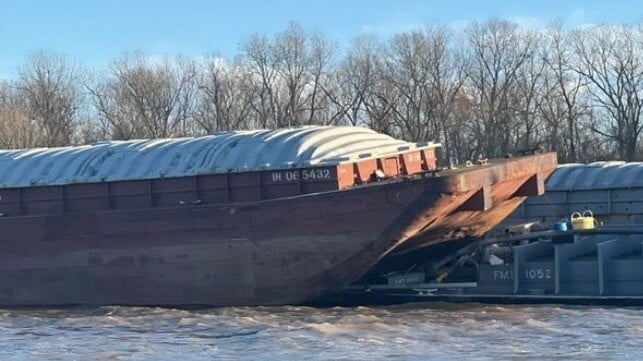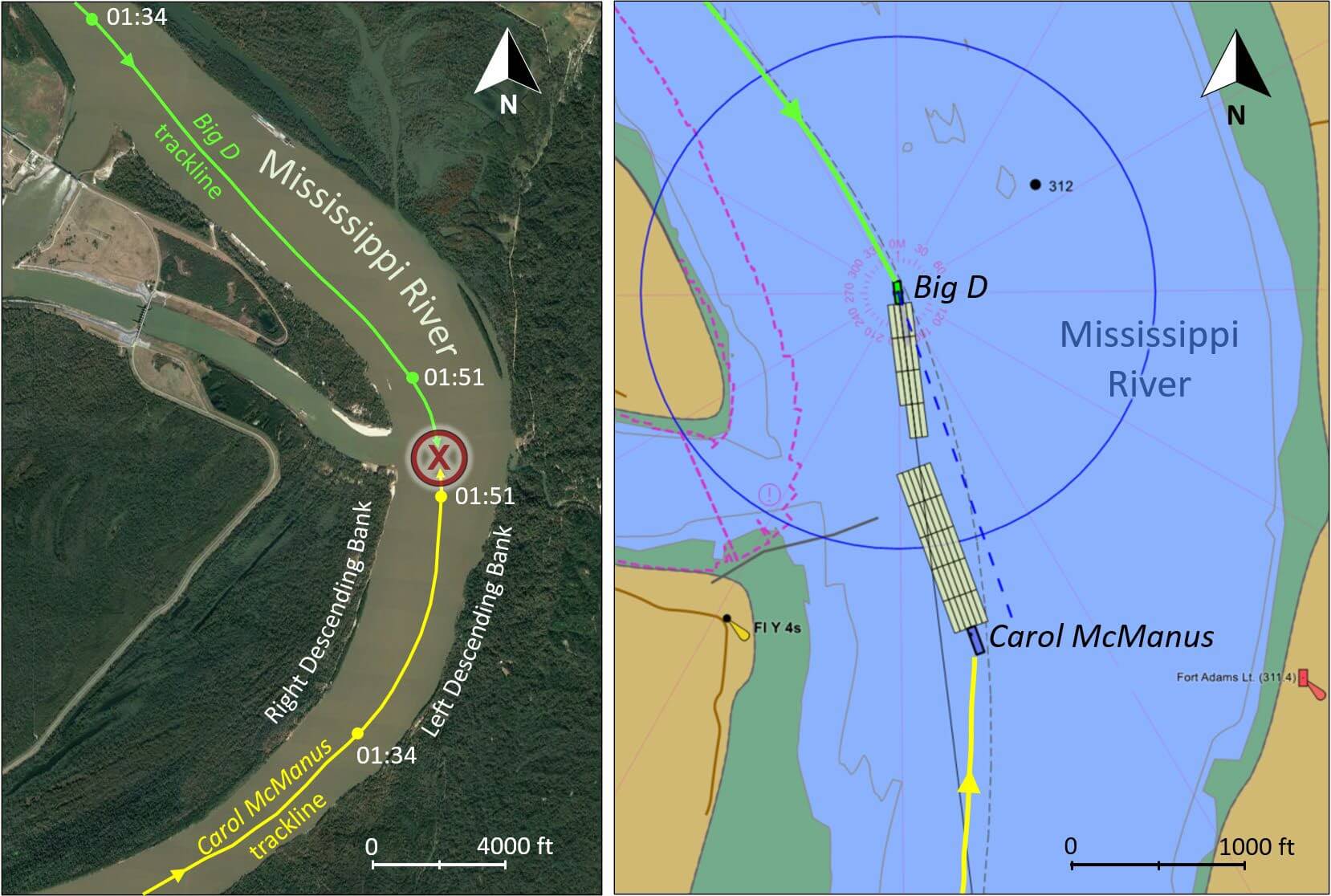Forgotten Passing Arrangements Led to Towboat Collision

The National Transportation Safety Board has determined that a major barge tow collision was caused by a pilot forgetting the passing arrangements that he had agreed on with another towboat, putting the two on the same side of the river.
In the early hours of January 9, 2023, the towboat Big D was downbound on the Mississippi and encountered the upbound towboat Carol McManus. Both were pushing full barge tows ahead; Carol McManus had 42 barges and an overall tow length of 1,560 feet, longer than a ULCC.
The two towboats were on track to meet at a bend in the river. At about 0134, Big D's pilot called the Carol McManus on VHF and proposed a "one whistle" passing arrangement (port-to-port). Big D would "hold tight" to the inside of the bend, on the right descending bank of the river. The Carol McManus' pilot agreed, saying "yeah, that'd be fine."
As they proceeded towards the bend, both towboats took a course along the right descending bank. The Big D's pilot noticed that something was wrong as his tow approached the bend: AIS showed that the Carol McManus was coming towards him, and so did the McManus' lights.
At 0151, when the two tows were just 1,000 feet apart and closing, Big D's pilot called Carol McManus to alert the towboat that it was "still cutting in on me." The McManus' pilot appeared to misremember their passing arrangement and responded “You said two whistle, right?”
Both pilots took measures to reduce the effects of a collision, backing down and maneuvering to minimize damage. The tows collided head-on at 0152, and multiple barges made contact. Both tows broke up, scattering barges along the river. Other nearby towboats responded and helped to round up the runaways.
 Courtesy NTSB
Courtesy NTSB
14 barges were damaged by the collision, with an estimated total repair cost of about $1.4 million. The impact also breached piping systems on a tank barge full of ethanol, releasing about 1,400 gallons of the chemical into the river.
There were no signs that Carol McManus' pilot was in any way unqualified for the task. He was an experienced towboat master with 50 years of experience on the water, including 30 as master or pilot. He was working a six-and-six schedule, standing watch from 1100-1700 and 2300-0500 every day, and he said that he got five hours of sleep between each watch. He passed all drug and alcohol testing.
In a post-casualty interview, he told investigators that he "got confused" about the passing arrangements and "forgot" about the agreement with Big D.

that matters most
Get the latest maritime news delivered to your inbox daily.
NTSB noted that six-and-six watch rotations can cause fatigue, but the McManus' pilot did not show signs of impairment. Instead, investigators honed in on the details of the passing arrangement conversation, as well as the length of time (20 minutes) between when the two pilots reached an agreement and when the vessels actually met. Repeating the details of the agreement back over the radio - instead of a nonspecific acknowledgement like "that'd be fine" - would have improved the odds of remembering it, NTSB advised. The agency said that it is "critical" to do so - even if COLREGS does not require it.
"Had the Carol McManus pilot repeated back the proposed arrangement, he would have been more likely to correctly recall the agreement and maneuver his tow to the left descending bank," NTSB concluded.
